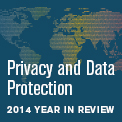Radio and television stations, as well as their audiences, have reason to celebrate. Last week, the Federal Communications Commission (FCC) announced significant updates to its regulations regarding the disclosure of material terms associated with promotional contests and sweepstakes conducted by television and radio broadcast stations. Since 1976, Section 73.1216 of the FCC rules (the Contest Rule) required broadcast stations that advertised its contests and sweepstakes to the general public to disclose the material terms on air. These on-air disclosures typically have taken the form of very rapidly recited terms at the end of the broadcast announcing the contest or extremely small print found at the bottom of the television screen. In an attempt to give broadcasters more flexibility in meeting their disclosure obligations and adapt to changing consumer expectations in the Internet Age, the FCC has updated the Contest Rule to allow broadcast stations to disclose material contest and sweepstakes terms on a readily accessible public website.
Under the revised Contest Rule, television and radio broadcasters that choose to disclose material terms of contests and sweepstakes through a website must do the following:
- Provide the terms on a “publically accessible” website (i.e., designed to be available to public 24/7, free of charge, with no registration requirement);
- Broadcast the relevant website address periodically on air, providing sufficient information for a consumer to find the terms easily. Broadcasters can meeting this requirement by mechanically reciting the website address as it appears in a browser (e.g., http-colon-backslash, etc.”) or using simple instructions (e.g., “for contest rules go to kxyz.com and then click on the contest tab);
- Provide a conspicuous link or tab on the broadcaster’s home page, labeled in a way that makes clear its relation to contest or sweepstakes information;
- Maintain the material terms on the website for at least 30 days after the contest or sweepstakes has ended;
- Where the material terms of contest has changed, announce that the terms have changed on air within 24 hours and periodically thereafter, and direct participants to the website to review the changes;
- Ensure that the material terms disclosed on the website conform in all substantive respects to the contest or sweepstakes terms broadcast over the air.
While discussing the updated regulations, the FCC affirmed its commitment to the core principles of the Contest Rule and reminded broadcasters that regardless of the medium of disclosure, broadcasters must provide complete, accurate and timely information about the contests they conduct, ensure that such information is not false, misleading or deceptive, and conduct their contests substantially as announced or advertised.
read more

 Subscribe
Subscribe


